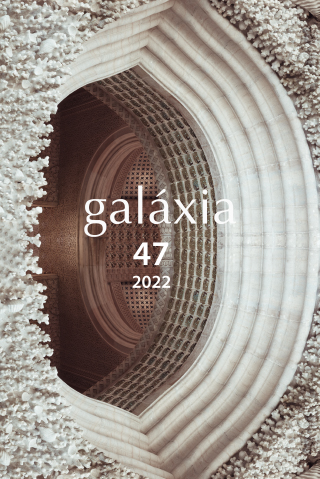O rei e o bobo da corte: cenografia, ethos e arquétipos no discurso presidencial
Palavras-chave:
Cenografia, ethos, arquétipo.Resumo
Este texto examina a cenografia e o ethos em discursos do Presidente brasileiro Jair Messias Bolsonaro em articulação com dois arquétipos da psicologia junguiana. No dia 3 março de 2020, ao participar de coletiva de imprensa sobre o fraco desempenho do PIB brasileiro no ano anterior, Bolsonaro recorreu a um comediante fantasiado de si mesmo para responder às perguntas dos jornalistas. A cena digna de vaudeville aconteceu a apenas duas semanas de o Brasil entrar em franco isolamento social em função da pandemia da COVID-19, o que viria a demandar não apenas um líder efetivo, mas um modelo de líder cujo comportamento é emulado por seus seguidores. O marco teórico se situa na interface entre a psicologia das narrativas arquetípicas em Jung (1991, 2011a, 2011b) e a cenografia e construção do ethos discursivo em Maingueneau (2008, 2018, 2020). O objetivo é analisar a cenografia que com- põe as declarações do presidente e suas atuações diante da imprensa, além da função arquetípica e subsequentes estereótipos que seu ethos mobiliza no imaginário coletivo do país durante a pandemia em contraste com o período pré-eleitoral de 2018. A pesquisa é exploratória e bibliográfica com aborda- gem qualitativa. Concluímos que o presidente inverte sua função arquetípica de herói (à época da campanha para as eleições de 2018) para trickster (bobo da corte, após a eclosão da pandemia da COVID-19), ao empreender uma cenografia em que um ethos de líder jocoso e caricato é configurado para se esquivar da responsabilidade e aliviar a magnitude da crise.
Downloads
Publicado
Como Citar
Edição
Seção
Licença
Copyright (c) 2022 Ernani Cesar de Freitas, Fernando Simões Antunes Junior, Luis Henrique Boaventura

Este trabalho está licenciado sob uma licença Creative Commons Attribution 4.0 International License.
Os autores de artigos publicados mantêm os direitos autorais de seus trabalhos, licenciando-os sob a licença Creative Commons CC-BY, que permite que os artigos sejam reutilizados e distribuídos sem restrição, desde que o trabalho original seja corretamente citado. Os autores concedem para GALÁxIA. Revista Interdisciplinar de Comunicação e Cultura o direito de primeira publicação.



 Este obra está licenciada com uma Licença
Este obra está licenciada com uma Licença 